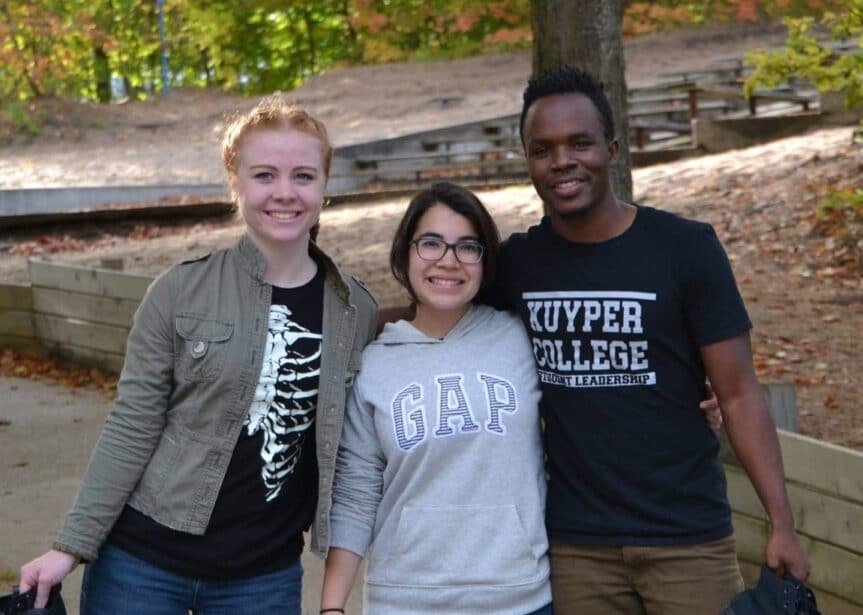Trauma-Informed Care: Teaching. Applying. Consulting.
On Wednesday, April 10, a group from Kuyper College’s Social Work Communities and Organizations class hosted an educational presentation for social workers called Trauma-Informed Care: Teaching, Applying, and Consulting, or TICTAC. The presentation was coordinated by students for their end-of-year class project.
Social Workers from various organizations and schools gathered at Kuyper College’s Vos Chapel to hear speakers share their expertise on trauma. These speakers included Pastor Darrell Delaney from Madison Church, Bob Smith from Cherry Health, and Dr. Karen VanDeusen from Western Michigan University. The keynote speaker was Kuyper alumna Mandy Taylor (2018), who is the Parent Support Specialist and Parenting Time Specialist Supervisor at Bethany Christian Services. In her role, she supports and educates foster and birth parents about the effects of trauma on their children and themselves.
Taylor spoke on the subject of “How trauma-informed is your practice?” Discussing how trauma and its effects change depending on the individual – “what is traumatic for one person may not be traumatic for another, and they may respond to it very differently.” Taylor stressed the importance of making clients feel safe so they can begin to work through their trauma, explaining that they cannot move forward until they feel safe. In addition to the trauma that clients experience, Taylor spoke about the second-hand trauma Social Workers can experience as they help clients work through difficult life events and remove children from dangerous situations.
After Taylor’s presentation, there was a question and answer time with a panel of social workers: Pastor Darrell Delaney from Madison Church, Bob Smith from Cherry Health, and Dr. Karen VanDeusen from Western Michigan University. They discussed important topics like the vital role of self-care in dealing with trauma, the trauma caused by racism, and how to help clients feel safe.
Attendees walked away with three CEUs (Continuing Education Credits), knowledge about how to deal with trauma in their practice and in their own lives, and the challenge: “What is one step you can take this week to change your practice to be more trauma-informed?”











